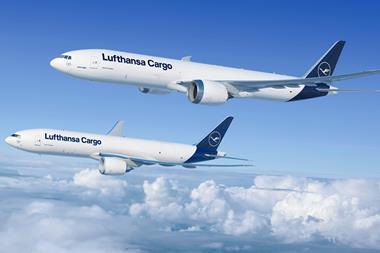Lufthansa Cargo's emissions-reduction targets are soon to be validated by the Science Based Target Initiative (SBTI) to bring its commitments in line with United Nations' Paris Climate Agreement.
The carrier said that it joined the SBTI in 2021 and validation of those targets is imminent.
The Lufthansa Group and Lufthansa Cargo has set the goal of halving net CO₂ emissions by 2030 compared to 2019 and to achieve a neutral CO₂ balance by 2050.
For Lufthansa Cargo, the efforts to achieve complete CO₂ neutrality focus primarily on five fields of action: continuous fleet modernisation, more efficient use of fuels, the switch to more sustainable aviation fuels (SAF), CO₂ compensation projects in other sectors, and reduction of emissions on the ground.
Dorothea von Boxberg, chairperson of the executive board and chief executive of Lufthansa Cargo, said: "Over the past 25 years, we have already been able to reduce our CO₂ footprint per ton km by 52%. But that is still not enough.
"That is why we want to set ourselves ambitious targets for the future. With the 'Science Based Targets Initiative' we have found a credible, scientific basis for this. We want to be transparent about what we have achieved so far and just as open with our customers, partners and the public about how we can get even better."
The SBTI only accepts emission reductions that are the result of fuel consumption reductions, for example through modern new aircraft, operational and airspace infrastructure measures, and the substitution of fossil fuel with SAF.
Lufthansa’s cargo business reported record performance in the first quarter of 2022.
2021 revenues increased by 38% year on year to €3.8bn.
In March, Lufthansa Cargo launched a new short- and medium-haul European freighter network.















